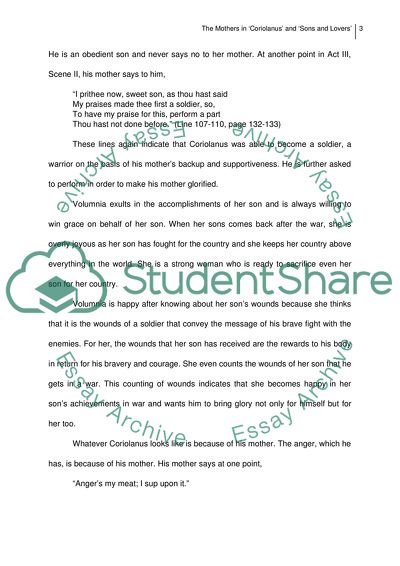Cite this document
(The Mothers in Coriolanus and Sons and Lovers Assignment, n.d.)
The Mothers in Coriolanus and Sons and Lovers Assignment. Retrieved from https://studentshare.org/literature/1724087-discussion
The Mothers in Coriolanus and Sons and Lovers Assignment. Retrieved from https://studentshare.org/literature/1724087-discussion
(The Mothers in Coriolanus and Sons and Lovers Assignment)
The Mothers in Coriolanus and Sons and Lovers Assignment. https://studentshare.org/literature/1724087-discussion.
The Mothers in Coriolanus and Sons and Lovers Assignment. https://studentshare.org/literature/1724087-discussion.
“The Mothers in Coriolanus and Sons and Lovers Assignment”, n.d. https://studentshare.org/literature/1724087-discussion.


